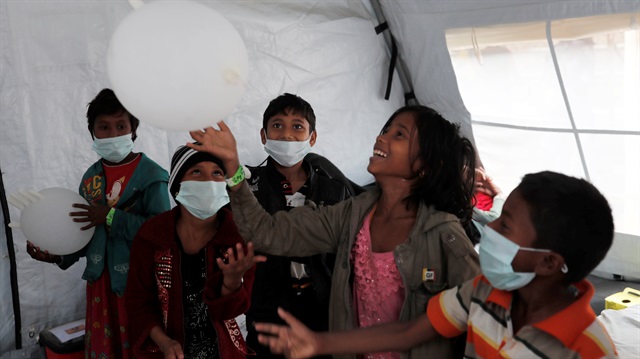
Aid workers are ramping up efforts to vaccinate half a million children against diphtheria in and around Rohingya refugee camps in Bangladesh, said the World Health Organisation (WHO).
The respiratory disease has killed as many as 31 people and infected about 4,000 since it broke out in November in the camps, which house more than 655,000 Rohingya Muslims who fled Myanmar military operations that began in August.
About 316,000 Rohingya children were vaccinated last month, according to a Sunday statement by the WHO, the United Nations' health agency. They will need two more doses, spaced a month apart.
In the meantime, health workers are vaccinating another 160,000 Bangladeshi children who live in communities near to refugee settlements in the border district of Cox's Bazar.
Diphtheria had almost been eradicated in Bangladesh, with only two cases reported in 2016, said Catalin Bercaru, a WHO spokesman in the capital, Dhaka.
When it appeared in the camps in November, "health workers were indeed surprised", he told the Thomson Reuters Foundation by email.
Since then, there have been suspected cases in nearby communities, he said.
Children are particularly vulnerable to diphtheria, a bacterial infection that causes dead tissue to build up over the throat and tonsils, making it difficult to breath. The disease also produces a toxin affecting other organs.
Diphtheria is spread through direct contact with infected people or by breathing secretions from their coughs or sneezes.
"One of the main reasons for the emergence of the outbreak is the low routine immunization coverage in Rakhine state of Myanmar, where the Rohingya population came from," said Bercaru.
The influx of hundreds of thousands of Rohingya also created perfect conditions for the disease to spread, as the refugees are forced to live in close quarters with poor sanitation and limited access to health care.



















